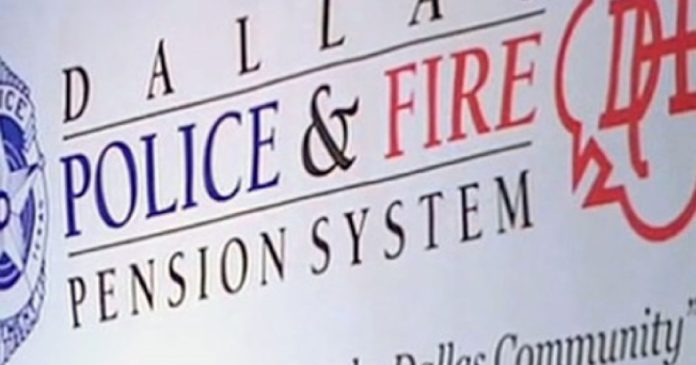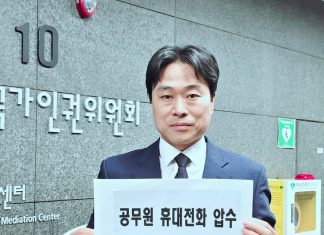In a major breakthrough, the Dallas Police and Fire Pension Board voted Thursday to accept the terms reflected in the city’s Sept. 26 offer and move toward a resolution between the two sides.
The board’s approval came with a caveat. The deal would be subject to “the acceptable finalization and negotiation” as well as the “finalization of a comprehensive settlement agreement” by the city and the pension board, according to a motion made by Rob Walters, a mayoral appointee to the board who has been part of negotiations between the city and the pension system for months.
The board narrowly approved Walters’ motion 6-5. The city has not publicly released the agreement.
David Kelly, another mayoral appointee, expressed optimism Thursday.
“Though there’s a window here, we’re excited about the prospect of settlement,” he said. “This does have to be brought back to this board for consideration in the end, and so I hope that we will take this moment to get something documented that works well for everybody.”
A settlement could stabilize longstanding tensions between the city and the pension system that have persisted since 2017 and stem from risky investments made by a previous board devoid of financial experts, and a run on the bank almost collapsed the pension.
City Manager Kimberly Bizor Tolbert said the vote was a “step in the right direction” for all stakeholders.
“The pension board approval reflects meaningful progress toward securing a sustainable, fair, and financially sound future for the pension system while giving clarity for the city’s long-term finances,” Tolbert said in a statement.
Deputy mayor pro tem Gay Donnell Willis echoed Tolbert and said the taxpayers will send the fund over $220 million this year. “So now the focus should be on the best financial performance for our first responders, retired and active,” she said. In his newsletter, council member Chad West celebrated the news and said the board had accepted the “city’s best and final” offer.
“So this week is wrapping up well so far for the City of Dallas,” West wrote.
The legal fight
Although negotiations have been underway for some time, the relationship between the two entities soured after the pension system sued the city over who would have the final say on a plan to fix the $3 billion funding shortfall.
A Travis County District Court ruled in favor of the pension system last year, and the city appealed the decision.
Pension system leaders have said the legislative action that rescued the plan from the brink of collapse in 2017 gave the board exclusive authority to approve the plan so long as it complies with state regulatory requirements. The city, in rebuttal, invoked another state law that says if the time required to fund a pension system exceeds 30 years, the city and the fund must develop a funding restoration plan together.
In court documents, the city referred to the system’s stance as “extreme” and said it “would also risk creating a precedent authorizing pension systems across Texas to raid city coffers (i.e., resident tax dollars) without so much as involving the cities in these decisions.”
In March, during the legislative session, Sen. Royce West filed a bill to put the city’s plan into law and stop the lawsuit. The Senate advanced the bill, but the effort ended when it reached the House of Representatives and failed to move out of committee.
Last month, the City Council approved spending an additional $500,000 as the lawsuit continues. Oral arguments were held in the Eighth Court of Appeals in El Paso on Wednesday.
Different plans
City and pension officials have been sparring over how quickly the city will contribute an “actuarially determined” amount to pay benefits and address a backlog of expenses, ensuring the pension system is fully funded in 30 years.
City officials have consistently built the city’s budget around pension payments, and said the system’s plan would increase budgetary pressures and force the city to cut services.
They adopted a five-year program last year to contribute $11.2 billion over three decades. The city also offered a stipend to offset the lack of cost-of-living adjustments and asked for greater oversight authority over the pension’s investment decisions to avoid repeating mistakes made decades ago that led the pension system toward risky investments.
Ultimately, it’s the taxpayers who will foot the bill.
Meanwhile, the pension system’s board adopted a plan based on the three-year program, which is expected to cost the city an additional $400 million. The pension system wants to give its members COLA adjustments as soon as possible, and its plan provides retirees with a partial COLA that factors in inflation and funding levels.
For instance, if the consumer price index rises by 2% and the funded ratio is 40%, then retirees will receive a 0.8% increase in benefits. The increase, however, cannot go beyond 1.5%.
The state law says the system can give its beneficiaries COLAs once it is 70% funded. As of March, the system was funded at 32%.







